The many-faced Lev Zinkovsky (Zadov). Adventurer, anarchist, Makhnovist, NKVD officer
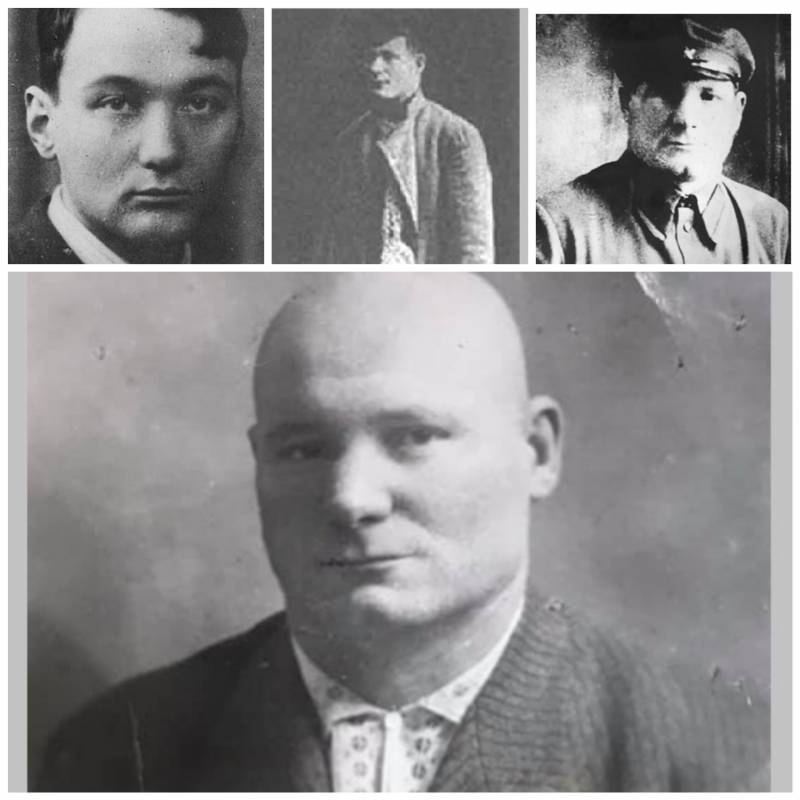
Lev Zinkovsky (Zodov, Zadov) in different years of his life
В previous article little was told about the anarchist Theodosius Shchus, who became the closest associate of Nestor Makhno. Today we will talk about another famous "Makhnovist" - Leib ben Yehud Yudkevich-Zodov, better known as Lev Zadov. But since the pre-revolutionary years, he himself preferred to call himself Lev Zinkovsky. And his younger brother Daniel, who also served with Makhno, took the surname Zotov. Both Lev and Daniil later became members of the NKVD, both were repressed and shot in 1938.
"Lyova Zadov"
Many people know the hero of today's article based on the novel by A. N. Tolstoy "Walking through the torments." Frankly, the writer did not spare him and even slandered him, exposing him as a hysterical psychopath and a sadist. In fact, people who knew Lev Zinkovsky-Zodov well describe him as a calm and reasonable person. His son Vadim, a participant in the Great Patriotic War, a colonel in the Soviet Army, also writes about this:
Alexei Tolstoy states in his novel:
And more:
Michael Weller adds:
In general, we have before us simply the reincarnation of Malyuta Skuratov in the description of Karamzin - no less.
Let's continue to quote Alexei Tolstoy:
Let us pay attention to the fact that “Leva Zadov” by Alexei Tolstoy for some reason speaks surzhik, which is hardly common in the proletarian Donbass, where Zinkovsky-Zodov was born and raised, especially in Jewish families. The word "torture" used by him in the novel in this case does not mean "to torture", but only "to question". And "look at me" means "look." That is, there is no narcissism and there is no promise of torture: Tolstoy's hero orders Roshchin to look into his eyes, warns him not to try to deceive him, and offers to honestly answer the questions asked.
V. Belokurov as Leva Zadov, frame of the Soviet film "Walking Through the Torments", 3rd series ("Gloomy Morning"), 1959, Roshchin's interrogation scene:
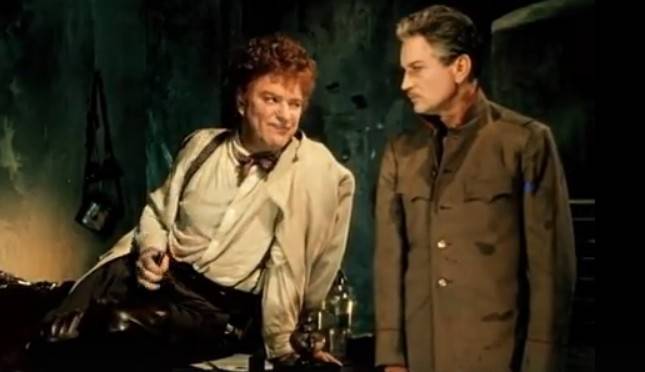
And this is how we see him in the Soviet 12-episode film of 1974-1977. (performed by N. Penkov):
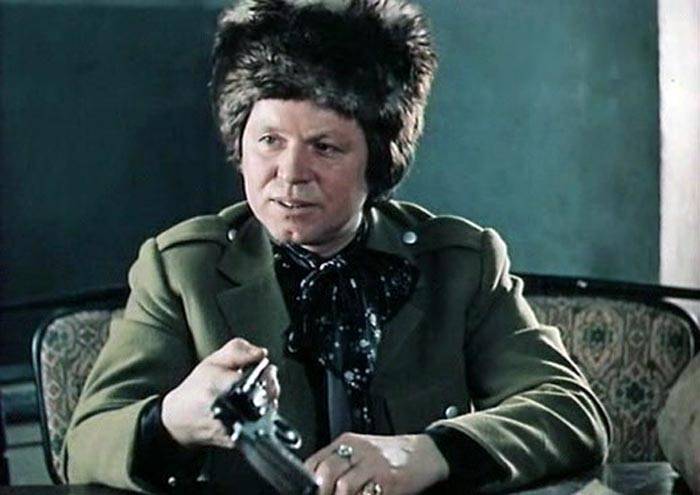
These actors are completely different from the real Lev Zinkovsky-Zodov:
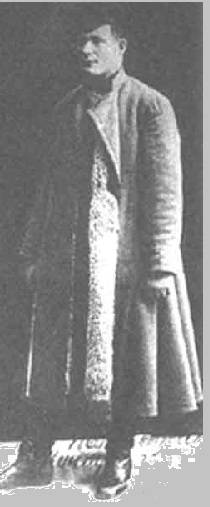
In fact, Makhno's head of counterintelligence was a certain Lyova Golik, a former turner from Gulyaipole, who is often confused with the hero of the article. And Lev Zinkovsky-Zodov worked more in intelligence: he was engaged in the introduction of agents into enemy headquarters and created very effective mobile reconnaissance groups. The actions of Makhno's army, unexpected for the opponents, are largely his merit. Zinkovsky's activities during his service with Makhno were thoroughly investigated in 1924, when he surrendered to the Soviet authorities, but the investigators could not find evidence of his participation in the torture of prisoners of war or in the massacres of civilians.
Let's return to A. Tolstoy's novel. Here is what Lyova Zadov tells Roshchina about himself on the way to Yekaterinoslav (which the Makhnovists are going to take in alliance with the Reds):
Here, frank fantasies have already gone. Born near the now well-known city of Bakhmut, Lev Nikolaevich Zodov becomes an inhabitant of Odessa and dramatically changes his role: instead of the sinister Malyuta Skuratov, we suddenly see the comical Popandopulo from the film “Wedding in Malinovka”.
M. Weller also did not consider it necessary to climb not only “into the wilds”, but even into reference books:
And what really happened?
The origin and youth of Lev Zodov
The hero of our article was born on April 11, 1893 in the agricultural Jewish colony Veselaya, which was located in the Bakhmut district near Yuzovka (modern Donetsk). This is the territory of the Yekaterinoslav province, in which Theodosius Shchus and Nestor Makhno were also born. By the way, look at the maps of Novorossia and Yekaterinoslav province in 1914:
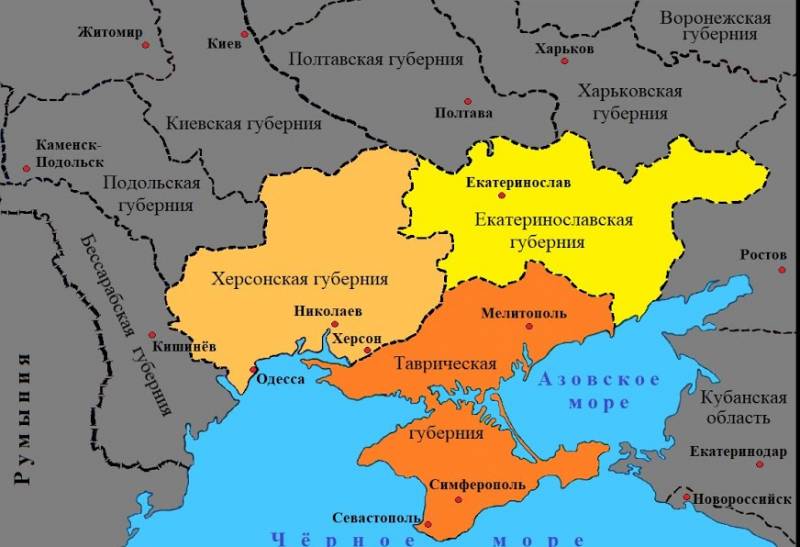
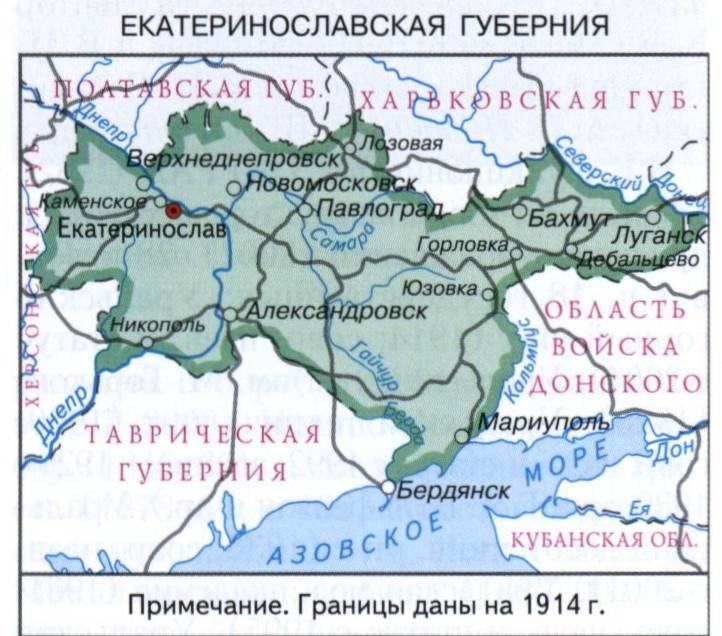
The Yudkevich-Zodov family was large (4 sons and 6 daughters) and poor, their parents had only two acres of land. The hero of the article could not boast of education - 2 classes in a Jewish school. By the way, later Leo was baptized according to the Orthodox rite.
In 1900, the Yudkevich-Zodovs moved to Yuzovka, where his father began working as a cab driver. The lion grew up as a real hero, and at the age of 16 his height was 2 meters. Recall that before the "acceleration" was still far away, the average growth of Russian conscripts in 1910-1913. was 169,1 cm, in 1914-1917. - 168,4 cm. Against the background of his peers, Lev Zodov seemed like a real giant. Alexey Tolstoy attributes to him the words:
At this time, Leo got a job as a loader at a mill, at the age of 18 he became a wheeler at a metallurgical plant: he “chased a goat” (wheelbarrow), delivering ore to blast furnaces. The weight of the ore loaded into such a wheelbarrow ranged from 500 to 800 kg, for one “flight” the “goats” paid one kopeck, and the working day was 12 hours. Do you already understand the reasons for the revolution in Tsarist Russia? It is not surprising that Lev became fascinated by the ideas of anarchism and became a member of the "Flying Combat Squad", which committed several expropriations: a robbery of an artel worker of a mine, a post office and a railway ticket office in Debaltseve. In 1913, Lev Zodov was arrested and sentenced to 8 years of hard labor. The verdict was quite mild, since according to Russian laws, a 20-year-old giant with “pood” fists was still considered a minor (citizens of the Russian Empire became adults when they reached the age of 21). It was in prison that Lev Zodov began to call himself Zinkovsky. But ill-wishers until the end of his life called him not even Zodov, but Zadov.
Two revolutions
Like all "politicals", Leo was released after the February Revolution. Having been released, he again got a job at the factory and was elected headman of the shop committee. After the October Revolution, he became a member of the Council of Workers', Peasants' and Soldiers' Deputies of Yuzovka. At the end of 1917, at the head of an anarchist detachment, he was engaged in the usual and familiar business - "expropriation of expropriators." But his detachment also clashed with the Cossacks, who raided the villages of Donbass.
In February 1918, Zinkovsky was subordinate to the anarchist Chernyak. When the Rada called on Austrian and German troops to Ukraine, their detachment was defeated and retreated to Tsaritsyn, where it was disarmed by the Bolsheviks, who, apparently, not unreasonably accused the newcomers of robbing the local population and looting. The Yuzovsky anarchists were arrested for 10 days, and then sent to fight against the White Cossacks of Ataman Krasnov. Unaccustomed to discipline, the “Chernyakovites” left their positions after three months and dispersed in all directions. Lev Zinkovsky and Chernyak at the end of 1918 ended up in Gulyaipole, the capital of the republic of Nestor Makhno. Leo's brother, Daniel, was also there.
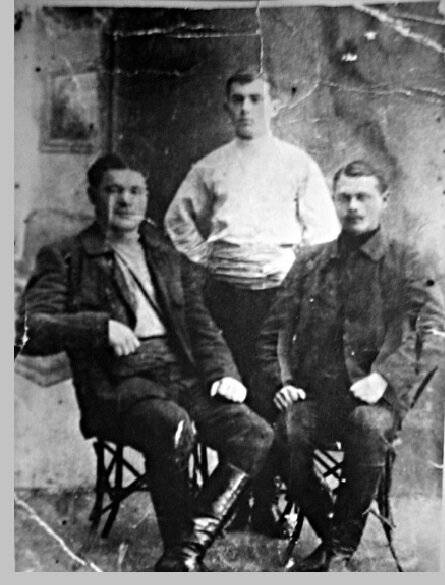
Lev Zinkovsky on the left, his brother Daniel in the center
Some historians believe that Lev Zinkovsky already then began to cooperate with the Bolsheviks - they allegedly were sent to Makhno, whom the new authorities did not trust, but were forced to seek an alliance. The basis for this version was the testimony of Zinkovsky himself, given by him after his arrest in 1937:
However, other researchers do not believe his words and consider him a banal deserter.
In the service of Father Makhno
In S. Yesenin's poem "The Country of Scoundrels" there are the following lines:
For the tax on peasant labor,
A gang on a gang whistles across the country,
Considering the will of power as a whip.
And who can we blame?
Who can close the window
So as not to see how the pack is guarded
And the peasantry love Makhno so much?
I must say that the famous "dad" was a very frail man with a height of only 160 cm and therefore did not like tall people.
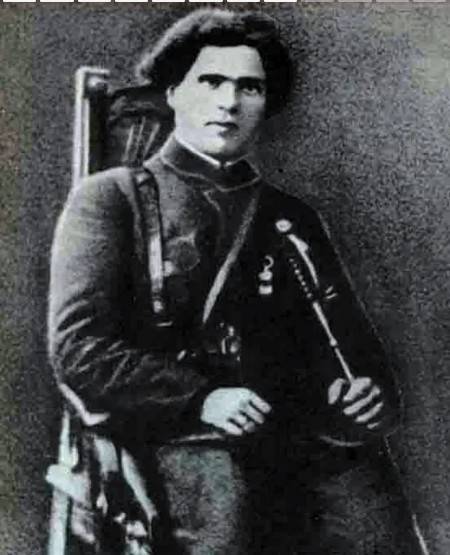
Two-meter Lev Zinkovsky-Zodov also at first did not enjoy the special location of Makhno. However, the wife of the "father" - Galina Kuzmenko, who often worked with the Yuzovsky anarchist, was always on his side, and Makhno gradually began to trust him.
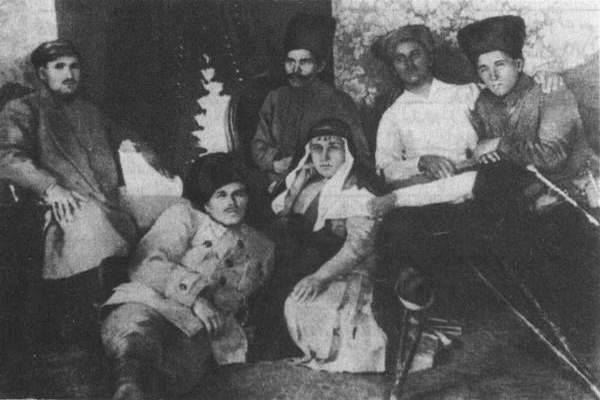
In this photo we see his wife Galina Kuzmenko in the form of a sister of mercy
At first, Lev Zinkovsky was appointed assistant commander of the regiment, in which he himself recruited new fighters from the surrounding peasants. In addition, he was engaged in the production of propaganda leaflets and even edited the newspaper "The Way to Freedom" - until the anarchist prison teacher Makhno, Pyotr Arshinov, who replaced him in this post, arrived in Gulyaipole. In March 1919, he was part of the "Initiative Group for the Recovery of Indemnities from the Bourgeoisie", which was headed by his former commander, Chernyak. It was Chernyak who first proposed the creation of counterintelligence in the Makhno Republic, but this idea was not immediately interested in the "father". At the beginning of June 1919, there was a break in relations between Makhno and the Reds. By order of Trotsky, some commanders of Makhno's army were killed in Kharkov. After that, 12 people of the Chernyak group went to Moscow, where they became part of the Moscow Federation of Anarchist Groups (MFAG), which on September 25, 1919 organized a terrorist attack on the premises of the Moscow Committee of the RCP (b) in Leontievsky Lane. 12 people were killed, including the secretary of the committee, Vladimir Zagorsky, after whom the city of Sergiev Posad received a new name in 1930 (in 1991 it returned its former name). Zinkovsky-Zodov did not participate in this adventure. In the autumn of 1919, we see him as a member of Makhno's headquarters, head of counterintelligence of the First Donetsk Brigade and deputy head of all army intelligence. In particular, he exposed the plot of E. Polonsky, a former sailor from the Black Sea and commander of the 3rd Crimean regiment, who planned the assassination of Makhno.
In May 1920, Zinkovsky-Zodov became a member of the "Commission for Anti-Makhnovist Activities". In October, he received the post of commandant of the Crimean (infantry) corps of the Makhnovist army, which on November 8 attacked Wrangel's army, fording the Sivash Bay. The Makhnovists then did not obey the order to leave the Crimea for the Caucasus - and were defeated by units of the Red Army. Lev and his brother Daniel managed to cross the Sivash again and return to Makhno. Since then, breaking out of the encirclement, Lev Golik, already mentioned above, died near Melitopol, his deputy Zinkovsky became the head of Makhno's entire intelligence and counterintelligence service, as well as the head of his personal guard.
The remnants of the Makhnovist troops managed to unite on December 7 near the village of Novospasovka, Berdyansk district. According to the centurion V. Belash, Makhno still had significant forces - about three and a half thousand cavalrymen and five thousand infantrymen, 16 guns and 500 machine guns. They were surrounded by a huge army of M. Frunze (up to 90 thousand soldiers, armed with 150 guns, 700 machine guns, 6 armored trains, 8 armored cars, 8 airplanes) - and managed to break through. Near the village of Buzovka (Kiev province), on January 3, 1921, they attacked the headquarters of the 14th Cavalry Division, and its commander, Alexander Parkhomenko, who became the hero of the film of the same name, shot in 1942, was also killed. This story It is also interesting because the younger brother of this red commander fought in the army of Makhno.
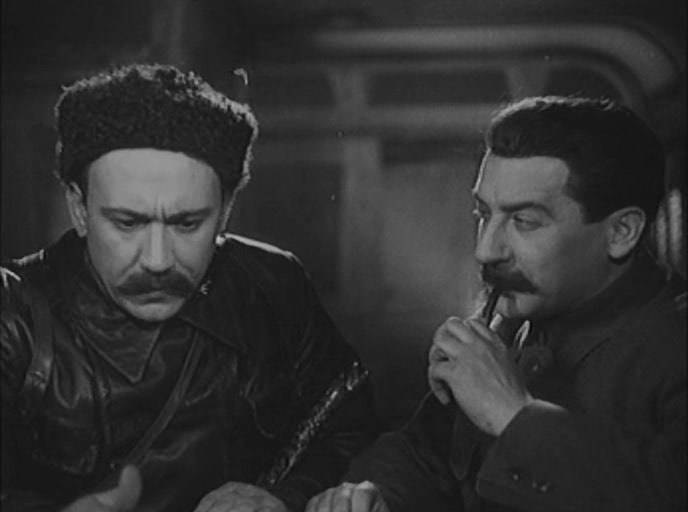
Alexander Parkhomenko and Joseph Stalin, frame of the film "Alexander Parkhomenko"
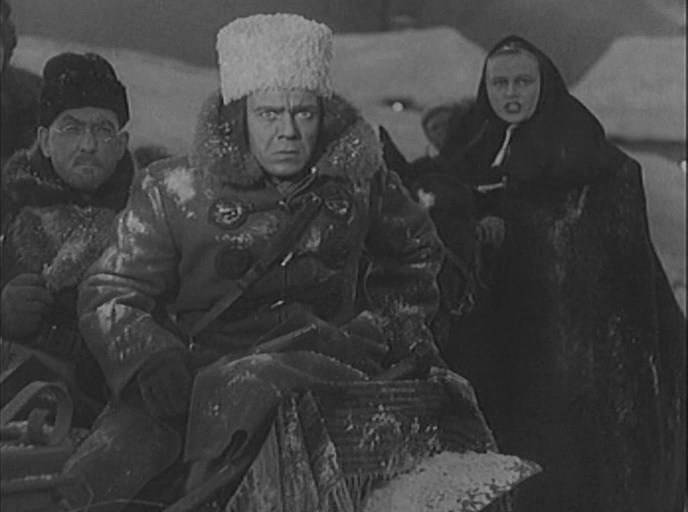
In the role of Makhno - Boris Chirkov, hero of socialist labor, holder of three orders of Lenin, winner of four Stalin prizes and the Stanislavsky State Prize of the RSFSR
Makhno's forces were fading, support from the peasants was decreasing. In the battle of March 16-17, 1921, the largest part of his army, led by the "dad" himself, was defeated by the 9th Cavalry Division of the Reds, losing the chancellery, convoy and artillery. Makhno was almost taken prisoner, but in early May he again had about 4 thousand soldiers with 190 machine guns and 8 cannons.
June 13, as you remember from previous article, the closest associate of Makhno Theodosius Shchus died. And on June 27, a detachment of 500 cavalrymen, in which Makhno was located, was practically destroyed. There was no longer any hope of winning. Only the last 78 fighters, including the wounded "dad", managed on August 28, 1921 to cross to the right bank of the Dniester. According to the recollections of eyewitnesses, it was Lev Zinkovsky-Zodov, at the head of a small detachment of 20 people, posing as a red commander, who managed to disarm the border guards and organize the crossing. In Romania, the Makhnovists were sent to an internment camp; only Makhno, his pregnant wife, Lev Zinkovsky and his brother Daniil were allowed into Bucharest. However, they did not have money to live in the capital, and therefore all four soon preferred to join the rest of the detachment. Then they moved to the small town of Gimesh, where the men worked at a sawmill.
Homecoming
Makhno did not sit still and in 1922 went to Polish Galicia, hoping to raise an uprising of local Ukrainians there, but was arrested. The brothers Lev and Daniil did not follow Makhno. In 1924, agents of the Sigurantsy tried to recruit Zinkovsky: he was asked to create a detachment from the former Makhnovists for sabotage operations on the territory of Soviet Ukraine. Zinkovsky agreed, and on June 9 the Romanians helped him cross the border. After that, he brought his people to the village council of the village of Pashtanki (25 km from the state border) and surrendered with them to its chairman. They were “received” by Dmitry Medvedev, the future commander of the Pobediteli special partisan detachment, which included the battle group of the famous intelligence officer Nikolai Kuznetsov. At that time, he served as deputy head of the Odessa Cheka.
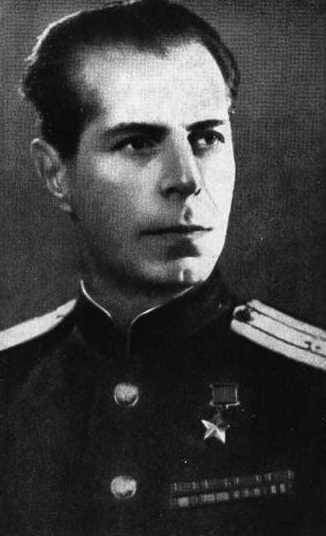
D. N. Medvedev
The members of the Zinkovsky detachment were almost immediately amnestied - according to a decree issued on November 3, 1921, and the brothers spent about 6 months in prison - the Chekists sorted out their past very carefully. In the end, Lev and Daniil were not only released, but also offered a job in the OGPU, which would have been impossible if they really were involved in the atrocities attributed to them by ill-wishers. The archives preserved a denunciation to the party control commission under the Central Committee of the All-Union Communist Party of Bolsheviks that Lev Zinkovsky served with Makhno, with a short answer from the People's Commissariat of Internal Affairs: “Authorities are aware of this.».
Later, stories appeared that the brothers bought their freedom by talking about the treasures of Makhno, but this is just a legend: in fact, why is the “father” worse than Kudeyar or Stenka Razin, who, according to legend, only did what they hid in caves or did they bury the gold they mined in the ground? "Eyewitnesses" said that they saw with their own eyes how Lev Zinkovsky got from a well in the village of Turkenovka (near Gulyaipol) "two four-bucket pans filled to the brim with jewels, gold and jewelry».
In fact, another chieftain, N. Grigoriev, who was killed on the orders of Makhno on July 27, 1919, was a great specialist in “treasures”. This one only in Odessa, which he captured, in a local bank and from the townspeople “took a billion”: 124 kilograms of gold bullion, 238 pounds of silver, 1 rubles in gold coins, and even mountains of “manufactory”.
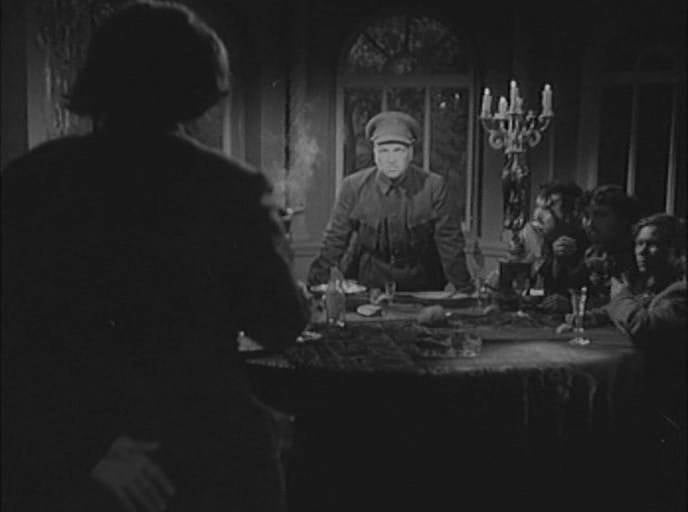
In the already mentioned Soviet film of 1942 "Alexander Parkhomenko" Makhno personally kills Grigoriev. And he also sings the famous song “It’s nice, brothers, to live” to the harmonica very soulfully.
And for 78 Makhnovists who crossed the Dniester in August 1921, there was one gold ring, which Lev Zinkovsky removed from his finger and gave to Makhno's wife Galina in the hope that the Romanians would be ashamed to take it away from a pregnant woman (later it was supposed to be sold, to get at least some money for the first time). That is, even some "pathetic" bag of diamonds "daddy" did not take with him and then lived in Romania practically in poverty. The son of Lev Zinkovsky, Vadim, a colonel in the Soviet Army, answering a question about the "treasures of Makhno", said:
According to another version, also not documented, Lev Zinkovsky earned forgiveness by pointing out caches with weapons.
Service in the NKVD
It was then that Lev Zinkovsky-Zodov ended up in Odessa, where he spent 12 years. At the end of 1924, he became an employee of the OGPU in the Odessa region, his duties included the fight against smugglers. And again he met with Dmitry Medvedev, who in 1925 was appointed head of the Secret Department of the Odessa GPU. Then Lev Zinkovsky received the post of authorized foreign department of the OGPU in the Odessa region.
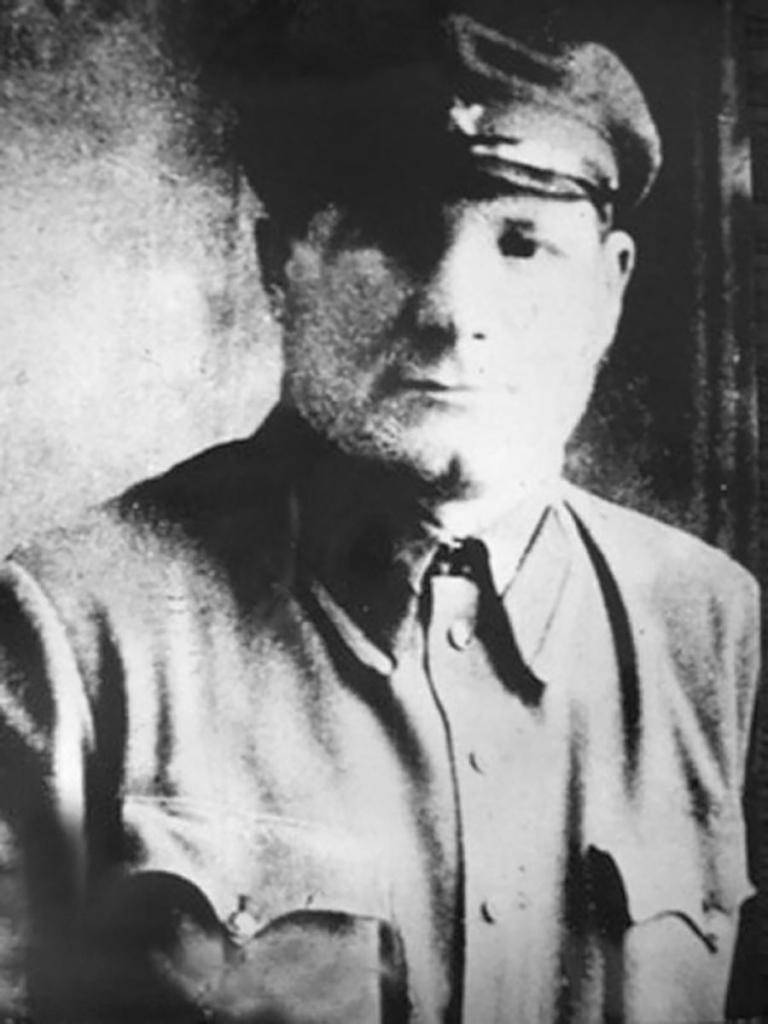
L. N. Zinkovsky
He created an intelligence network in Romania from Russian emigrants, received thanks and diplomas. In 1929, he was wounded during the liquidation of a dangerous saboteur and received a cash prize, gratitude from the OGPU of the Ukrainian SSR and a Mauser with a gold monogram: “For military merit". The names of at least two terrorists taken alive personally by Zinkovsky are known - these are white emigrants Dmitriev and Bogdanovich. He was awarded the second nominal weapon in 1932 - "for an active and merciless struggle against the counter-revolution". In 1934 he received an award for the destruction of a sabotage group that came from the territory of Romania. From the end of 1936 he worked as a senior commissioner of the 3rd department of the Odessa NKVD (counterintelligence).
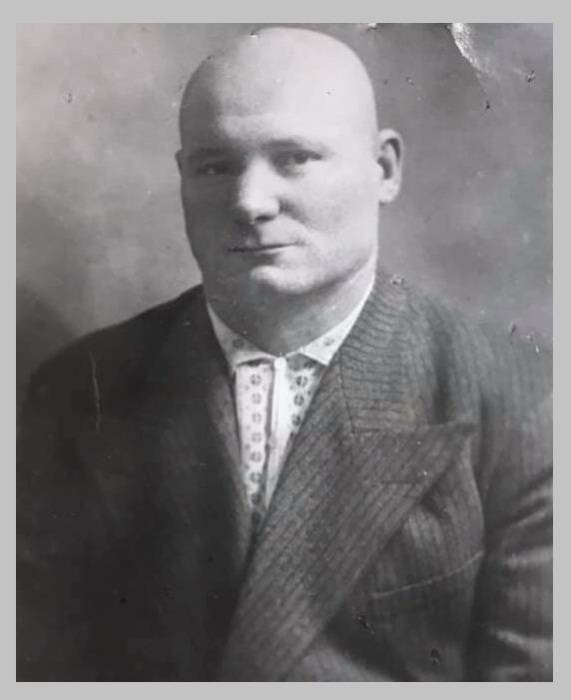
L. Zinkovsky, 1930s
It is curious that until the arrest, Zinkovsky remained non-partisan. During the investigation, he showed that only from 1913 to 1921 he was an anarchist-communist. That is, it turns out that it was possible to work in responsible positions in the NKVD, receive awards - and not be a member of the party.
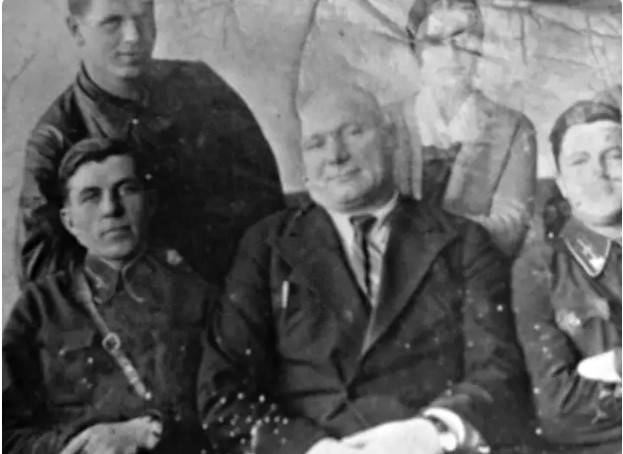
L. Zinkovsky with colleagues
In Odessa, Lev Zinkovsky got married - the wife of the owner of the apartment in which he rented a room left for him. This woman's name was Vera, she already had two children - daughter Alla and son Vladislav, who were adopted by a new husband.
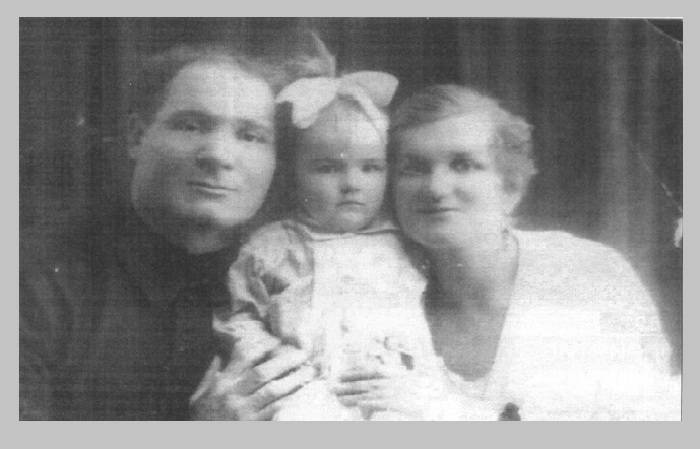
Lev Zinkovsky with his wife Vera and daughter Alla, 1926
In 1926, the only common child was born to Leo and Vera - the son Vadim.
The younger brother of the hero of the article - Daniil (who, as we remember, took the surname Zotov) also worked against Romania - as an authorized representative of the Foreign Department of the OGPU, but in Tiraspol.
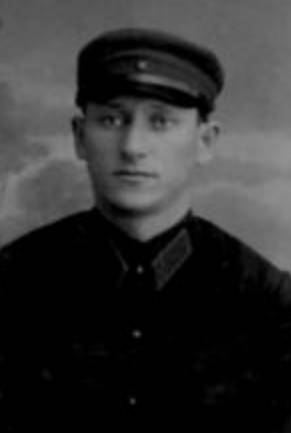
Daniil Zotov
Arrest and execution
At the end of 1935 in Romania, the Sigurantsey dealt a strong blow to the Soviet intelligence network, but the brothers did not suffer then - it was clear to everyone that in Bucharest there were professionals in counterintelligence, and work in intelligence was never without losses. But in 1937, Lev and Daniel were nevertheless arrested and accused of collaborating with the intelligence agencies of Romania and Great Britain. They also remembered the past of Lev Zinkovsky: in Odessa they “found”large underground Makhnovist organization”- about 90 people, including 10 communists. These accusations are now recognized as absolutely groundless. Suspicions seem more reasonable that Lev Zinkovsky confused counterintelligence and smuggling a bit and, taking advantage of his position, gave some scarce imported goods for sale to resellers.
The brothers were shot in 1938, Lev Zinkovsky on September 25, at the age of 45. According to cellmates, when he was taken away to be executed, he said quietly:
In 1956, Vadim Zinkovsky's inquiry about the fate of his father was answered that he died of peritonitis on March 17, 1942.
The fate of the family members of Lev Zinkovsky-Zodov
The wife of the hero of the article was also arrested, but the investigators did not find grounds for taking the case to court, they released her about a year later. After the execution of her husband, she worked as a teacher in the village of Belorechenskaya, Krasnodar Territory.
The adopted daughter of Lev Zinkovsky, Alla, was a nurse and died at the age of 21 in Sevastopol on the Georgia ambulance transport, which was sunk by a German dive bomber on June 13, 1942.
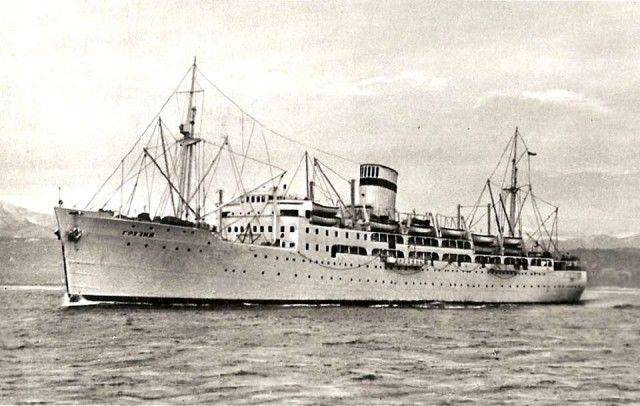
Ambulance transport Georgia
Another child adopted by Lev Zinkovsky, Vladislav, was killed in a battle near Rostov - in 1943.
The only native son - Vadim Lvovich Zinkovsky, fought from January 1944, was awarded the medal "For Military Merit", the Order of the Red Star, the medal "For the Victory over Germany". He retired with the rank of colonel in 1977. Until 1998, he worked at the Gelendzhiktourism company. Died January 27, 2013.
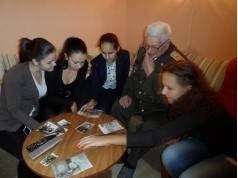
V. L. Zinkovsky in 2012
He wrote the book "The Truth about Zinkovsky-Zadov Lev Nikolaevich - an anarchist, Chekist" and in 1990 managed to achieve the rehabilitation of his father. Two of his sons, grandsons of the famous colleague Makhno, also served in the army and both became colonels - like their father.
Information